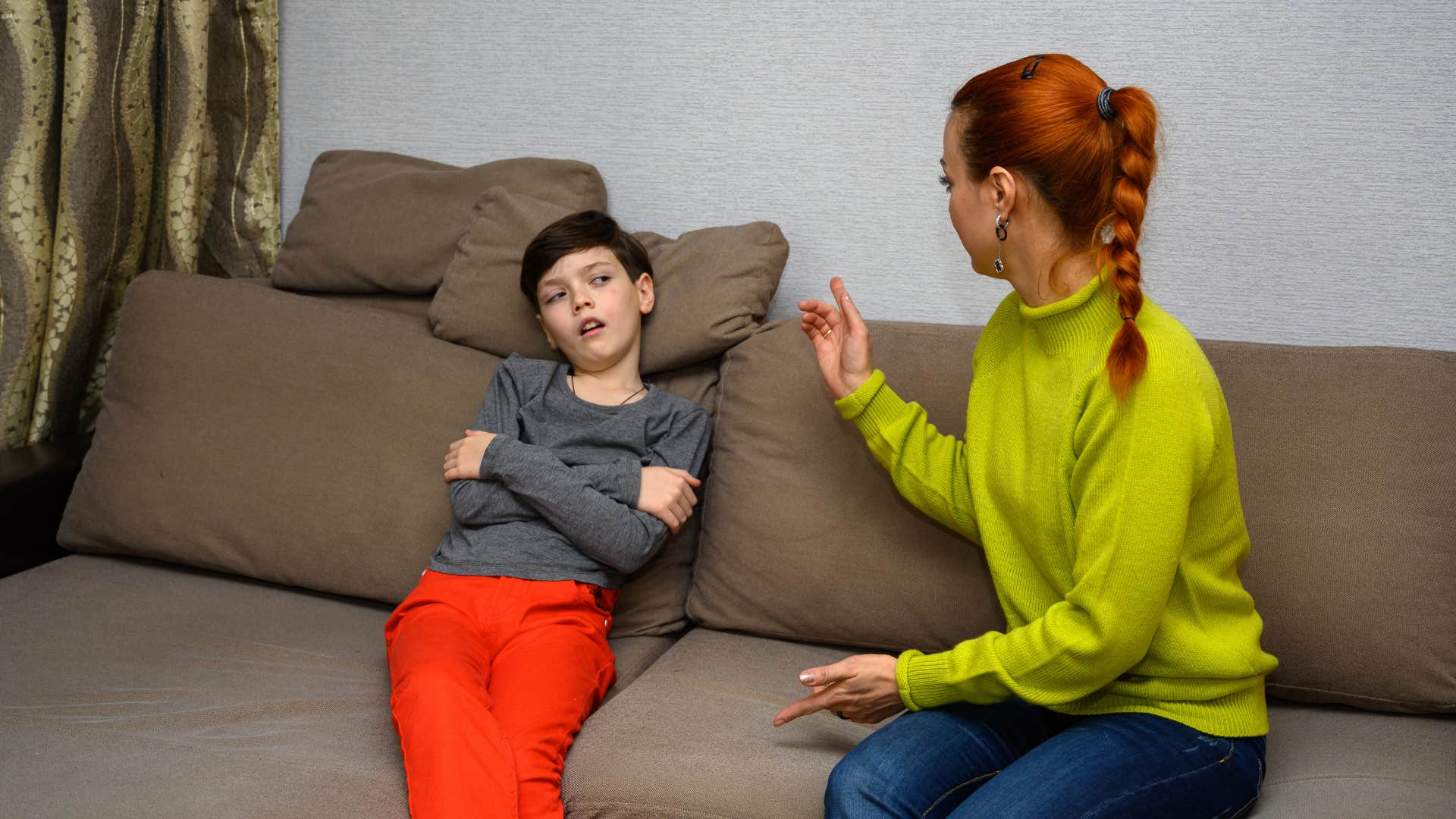7 Ways To Stay Sane When Your Middle Schooler Is Hormonal, Rude, And Testing Every Boundary
 Ludmila Pashkevych | Unsplash
Ludmila Pashkevych | Unsplash As kids move into the middle school years, their need for independence ramps up fast. At the same time, hormones kick into high gear, empathy is still under construction, and self-esteem can feel fragile on a good day. The result is often a child who feels moody, reactive, rude, and determined to test every boundary you set. Fun times, right?
It’s normal, and it isn’t personal, but that doesn’t mean it’s easy to live with. When middle schoolers lash out, parents often become the safest target. Even when you understand what’s behind the behavior, it can still feel draining, frustrating, and, honestly, hurtful. You don’t deserve to absorb constant jabs just because you’re the adult. If your middle schooler is acting hormonal, rude, and pushing limits at every turn, these strategies can help you stay sane while keeping your boundaries intact.
Here are 7 ways to stay sane when your middle schooler is hormonal, rude, and testing every boundary:
1. Have compassion, but don't excuse everything
 fast-stock / Shutterstock
fast-stock / Shutterstock
Most of us remember what it was like to be a pre-teen and can identify completely. My brother’s description of me from age 12 –13 is: "Stomp, stomp, stomp, stomp, SLAM!" When you understand and sympathize with what your child is going through, that can help you overlook the "small stuff."
A 25-year study from the University of Virginia found that when moms show empathy toward their teens during the hard stuff, those teens grow up and do the same thing with their own friends and eventually their own kids. So when you remember what a nightmare you were at that age and cut your middle schooler some slack for being a total pain, you're actually teaching them how to be understanding with other people, too.
2. Take care of yourself first
 JLco Julia Amaral / Shutterstock
JLco Julia Amaral / Shutterstock
Keep yourself healthy and positive. This is your shield against the barbs and jabs thrown in your direction, and it is enough to get you through much unpleasantness.
Research found that parents who take care of themselves feel healthier, way more confident about their parenting, and get along better with their kids overall. Basically, when you keep yourself in a good place mentally and physically, you've got this protective shield against all the rude comments and door slams your teen throws your way.
3. Pick battles that actually matter
 StockPhotoDirectors / Shutterstock
StockPhotoDirectors / Shutterstock
Be savvy about the battles you join. For example, my daughter is very big on privacy — her room is her sanctuary, and she wants the rest of us to respect that. I’ve chosen to enforce a similar boundary, not because I feel strongly about my room and privacy, but because it's a boundary she can more easily relate to and appreciate.
Find something important to your pre-teen, and turn it into a support for you. If they don’t like it when you raise your voice, make using calm voices a house rule.
4. Don't take the bait when they want a fight
 Violator22 / Shutterstock
Violator22 / Shutterstock
This is another perspective on picking your battles. You do not have to participate in every argument.
The best parents pause and calm themselves down before responding to their kid acting out instead of getting sucked into every fight, researchers have concluded. Just because your teen wants to argue doesn't mean you have to show up for it, and honestly, when you don't take the bait, you're showing them what actual self-control looks like.
5. Step away when you feel yourself losing patience
 Gladskikh Tatiana / Shutterstock
Gladskikh Tatiana / Shutterstock
There are times when I can easily keep my cool when my pre-teens act out. But, other times, my natural tendency is to jump in and fight. It’s not appropriate, and it’s not fair (after all, I am bigger and more clever). In these moments, I need space from them. So, I take a time out until I know I can respond in a conscious and supportive way.
Harvard research found that before you can help your teen deal with their giant feelings, you've gotta deal with your own first by doing something as simple as taking a few deep breaths or walking away. When you give yourself a timeout until you can respond like a calm, supportive parent instead of losing it right back at them, you're being the actual adult in the situation and teaching them how grown-ups handle big emotions.
6. Be firm, direct, and clear about respect
 Pixel-Shot / Shutterstock
Pixel-Shot / Shutterstock
Let your kids know that it's inappropriate when they lash out at you in a hurtful way. Your feelings are valid, too. And your kids are old enough to learn about empathy. Establish a house policy around kindness and hold everyone to it. Find a way to handle the situation in the moment (logic and reason may not work with intense emotion) and then create a space to debrief later.
For example, if your child says something hurtful and lashes out, don't just say, "Ouch." Let them know that you refuse to stay and take their attack, then walk out of the room. Later, when things have calmed down, have a conversation about how it felt for you. Encourage empathy, expect an apology, and figure out a way for them to handle the situation differently in the future. What are "safe" ways to express anger?
7. Call in support when you need backup
 kryzhov / Shutterstock
kryzhov / Shutterstock
Sometimes we need to call in the big guns and play the "don’t mess with me" card. There is nothing wrong with asking another adult to come into the situation and facilitate. Or, in some cases, put their foot down and state the obvious that what's happening is just not okay.
I distinctly remember being reprimanded as a pre-teen by my Dad for being mean to my Mom. In our house, such actions had strict consequences. Through it all, find a way to keep things in perspective.
Even though it is a normal part of a child’s developmental process, you can manage it, and you deserve to stay supported and safe. After all, you need to be ready when they ask to start driving the car in a few years!
Elaine Taylor-Klaus and Diane Dempster, founders of ImpactADHD®, teach/write about practical strategies for parents of complex kids with ADHD and related challenges.

